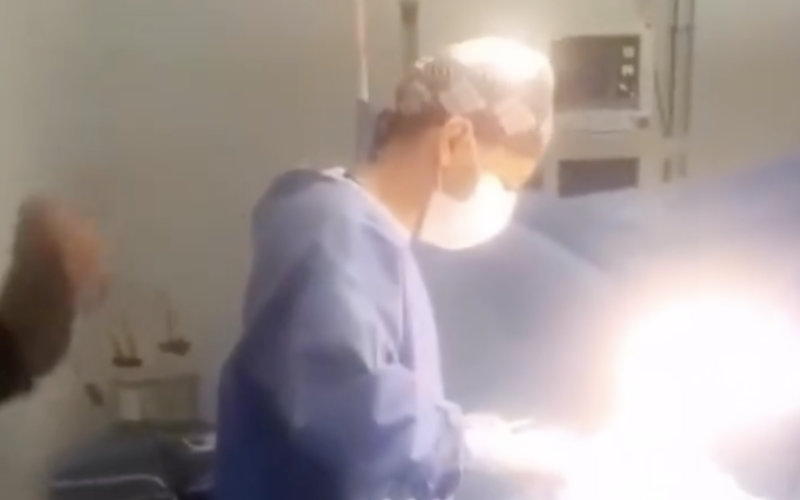Moroccan Surgeons’ Dance Video Sparks Debate: Music in Operating Rooms - Medical Necessity or Negligence?

The video showing a medical team in an operating room dancing to the sound of chaâbi music during a surgical procedure has sparked a heated controversy in Morocco. A professional gives his opinion on the subject.
Opinions differ. While some see it as normal behavior in advanced healthcare systems, others consider this scene as proof of laxity and negligence. In reality, playing music in operating rooms is a common practice in the world’s largest hospitals, says Mohamed N., a surgeon who has worked in several countries. According to him, music serves to create the favorable conditions for the concentration and relaxation of the surgeon and his team during long and complex operations. Medical studies published in renowned scientific journals have confirmed that soft music improves the performance of the surgical team, reduces errors and enhances the quality of communication between members, provided it is carefully chosen and does not interfere with the work or attention, informs the surgeon.
And he adds: "The world has seen famous cases where music was not just a background sound, but an integral part of the surgical procedure itself. For example, a patient in Brazil played the guitar during the extraction of a brain tumor, a scene that was not at all theatrical, but a precise medical procedure allowing doctors to monitor the integrity of the nerve functions related to finger movement. In India, a patient sang during a delicate neck operation, in order to monitor the vocal cords in real time. In the United States, several videos have circulated showing doctors dancing in operating rooms, but this was done after the end of the interventions or in particular professional contexts, often with rigorous authorization, consent and supervision of the filming."
For Mohamed N., the problem is not the music, but the context of its use in a professional setting. "In the video that sparked the controversy, the music was not just a background sound, but became the central element of the scene, where the medical team seemed more concerned with dancing than anything else. This undermines trust and raises questions as to whether the priority of these people is the patient’s health or the pleasure of the moment. That is the fundamental difference between what is acceptable internationally and what can be considered unethical. In countries that allow music in operating rooms, this is done according to strict rules, within limits that respect the patient and the dignity of the profession."
He will continue: "As a doctor, I see nothing wrong with a surgical team working to the rhythm of chosen music, if it helps them focus and reduce psychological pressure. But when the operating room becomes a performance venue, filmed and broadcast without awareness of the consequences, it calls for accountability and can only be explained by negligence. Nor should we generalize: not all those who work with music are negligent, just as those who remain silent are not necessarily professional." The surgeon believes that "we should not castigate or demonize doctors, but open a serious professional debate to clearly define what is allowed in an operating room... Music is not the enemy of professionalism, it can even, in certain contexts, be its ally, provided it is managed with reason and responsibility."
Related Articles
-

Border Police Crack Down on Thriving Stolen Car Trade to Morocco
1 September 2025
-

Vacation Nightmare: Dutch Teen’s Seizure at Moroccan Airport Leads to Harrowing Medical Ordeal
31 August 2025
-

Morocco’s Intelligence Services: The Unsung Heroes in Global Counter-Terrorism and Drug Busts
31 August 2025
-

Mental Health Crisis Grips Morocco: 425 Cases Spark Calls for Urgent National Action
31 August 2025
-

Vueling Expands Winter Routes: Barcelona to Morocco, Slovenia, and France
31 August 2025